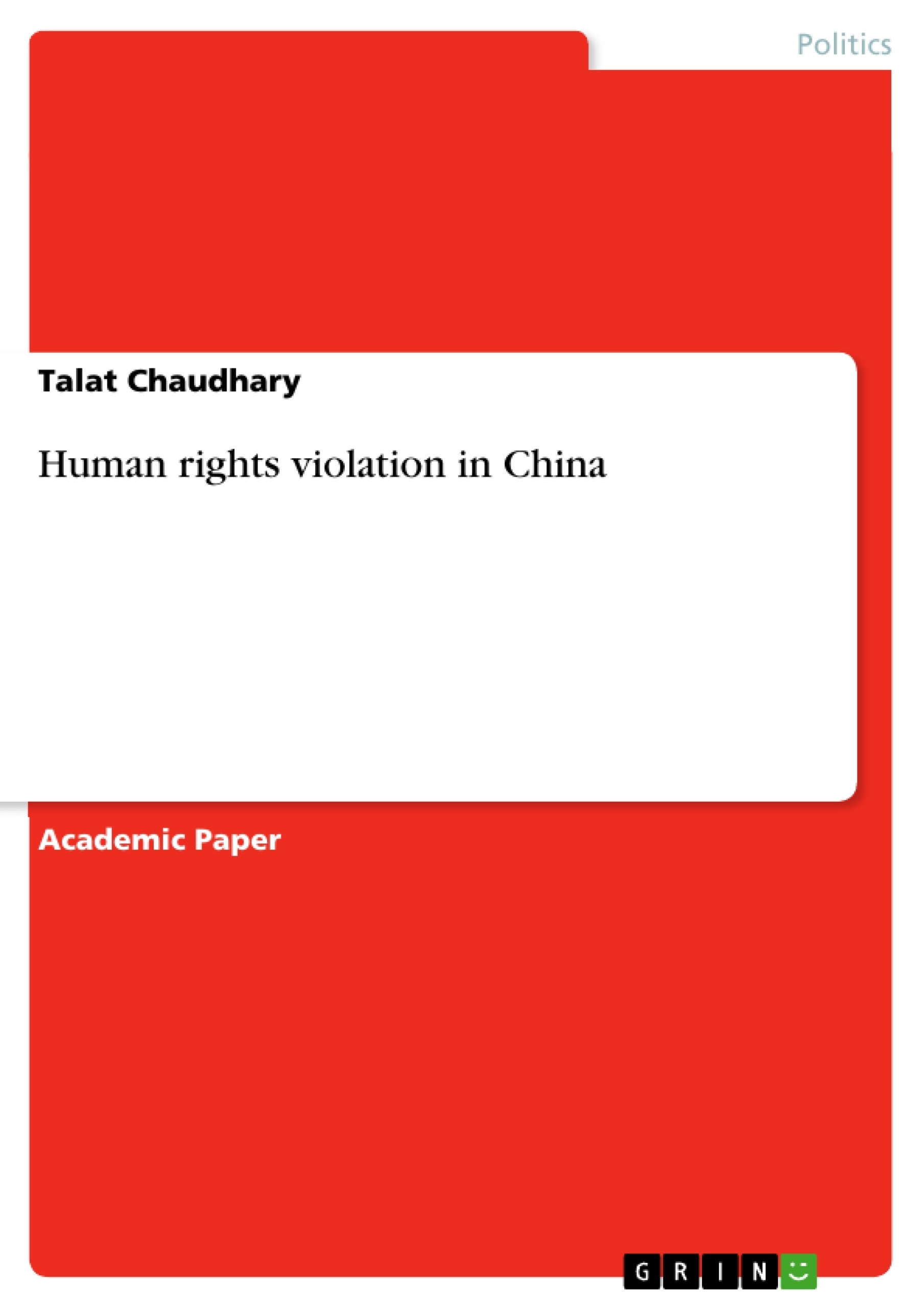Human rights, a concept deeply ingrained in global discourse, serves as a cornerstone for evaluating the ethical foundations of societies and their treatment of individuals. This paper delves into the discourse surrounding human rights in the context of the People's Republic of China (PRC), exploring the historical evolution, ideological shifts, and incidents that have shaped its trajectory. While international attention on human rights violations in China has intensified over the years, the Chinese government's stance, rooted in notions of sovereignty and socialist principles, has presented a complex narrative.
The paper unfolds chronologically, navigating through key milestones in China's human rights discourse. The Democracy Wall Movement in 1978-1979 and the Tiananmen Square protests of 1989 serve as pivotal moments that challenged the official stance on human rights, leading to international condemnation. The paper scrutinizes China's engagement with the United Nations, its signing and ratification of human rights conventions in the 1980s, and the subsequent realities that questioned the alignment of rhetoric with practice.
China's approach to human rights is shaped by a unique blend of socialist ideology and historical context. The prioritization of economic and social rights over political rights, as articulated in official white papers, reflects a distinct emphasis on collective well-being. The paper critically examines China's assertion that the right to subsistence is the paramount human right, portraying human rights as a noble goal pursued by the state rather than a stringent set of obligations.
Despite China's active involvement in international human rights frameworks, incidents such as the Tiananmen Square massacre expose a stark contrast between rhetoric and reality. The invocation of sovereignty as a shield against international criticism, a principle rooted in China's historical struggle for autonomy, adds layers of complexity to the discourse.
This paper aims to unravel the intricacies of China's stance on human rights, examining the ideological underpinnings, historical developments, and the dissonance between rhetoric and actions. In subsequent sections, we will delve into specific incidents of human rights violations, shedding light on the challenges and contradictions that define the contemporary discourse on human rights in China.
Inhaltsverzeichnis (Table of Contents)
- Introduction
- Understanding the discourse of Human Rights in China
- Exemption from International accountability..
- Incidents of human rights violations......
- Conclusion..........\n
Zielsetzung und Themenschwerpunkte (Objectives and Key Themes)
This paper examines the discourse of human rights in China from its historical evolution to contemporary practices. The author explores the complex relationship between China's national sovereignty and international human rights standards, highlighting the challenges of reconciling economic development with the protection of fundamental rights. The paper also sheds light on the unique perspectives of human rights within the context of a socialist state, where collective rights and economic security are often prioritized over individual political rights.
- The historical development of the concept of human rights in China
- The tension between China's national sovereignty and international human rights standards
- The prioritization of economic and social rights over political rights in China
- The impact of international pressure on China's human rights policies
- The significance of China's engagement with the United Nations on human rights issues
Zusammenfassung der Kapitel (Chapter Summaries)
- Introduction: This chapter sets the stage by tracing the evolution of the term "rights" in Chinese language and history. It discusses the impact of the founding of the People's Republic of China (PRC) on human rights discourse and examines the significance of the Tiananmen Square protests. The chapter also touches upon China's engagement with international human rights institutions, highlighting its involvement with the United Nations and its ratification of key human rights conventions.
- Understanding the discourse of Human Rights in China: This chapter dives into the unique perspective of human rights in China. It explores the transition from Confucian philosophy to the modern world, highlighting the challenges of reconciling traditional values with international human rights standards. The chapter also examines the government's policies on human rights, including its prioritization of economic and social rights and its approach to international human rights frameworks.
- Exemption from International accountability..: This chapter focuses on China's perspective on international accountability regarding human rights. It analyzes the concept of national sovereignty as a justification for China's actions, highlighting the potential conflict between domestic policies and international norms. The chapter also examines the challenges of promoting human rights in a rapidly developing country with diverse perspectives on the role of the state.
Schlüsselwörter (Keywords)
Human rights, China, sovereignty, economic rights, social rights, political rights, international law, United Nations, Tiananmen Square, Confucian philosophy, socialism, development, international accountability.
Frequently Asked Questions
How does China view the concept of human rights?
China's approach is rooted in socialist ideology and national sovereignty, prioritizing economic and social rights (subsistence) over individual political rights.
What was the significance of the 1989 Tiananmen Square protests?
The protests served as a pivotal moment that challenged the official stance on human rights and led to significant international condemnation and scrutiny.
Does China engage with international human rights frameworks?
Yes, China has signed and ratified various UN human rights conventions since the 1980s, though there remains a dissonance between official rhetoric and domestic practice.
How does Confucian philosophy influence Chinese human rights discourse?
The paper explores the transition from traditional Confucian values to modern standards, highlighting the challenges of reconciling collective well-being with international norms.
What is the "Right to Subsistence" in the Chinese context?
The Chinese government asserts that the right to subsistence and development is the paramount human right, viewing it as a prerequisite for all other rights.
- Quote paper
- Talat Chaudhary (Author), 2020, Human rights violation in China, Munich, GRIN Verlag, https://www.grin.com/document/956930



